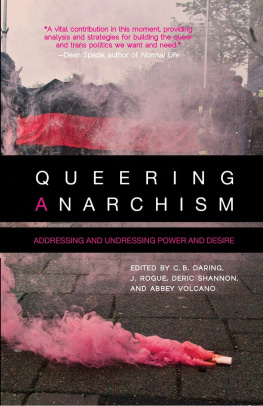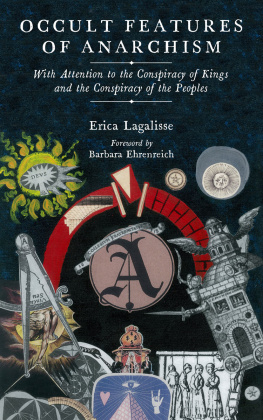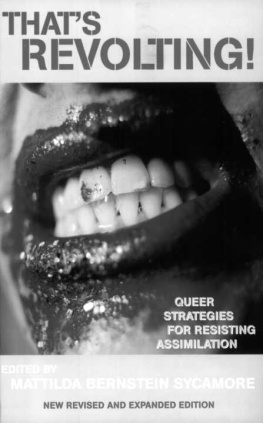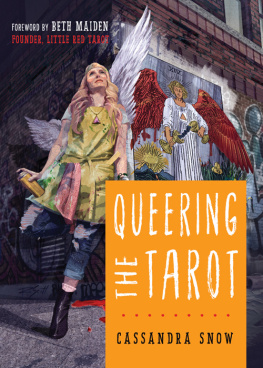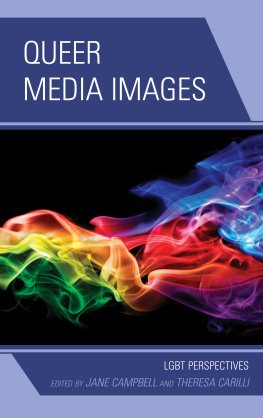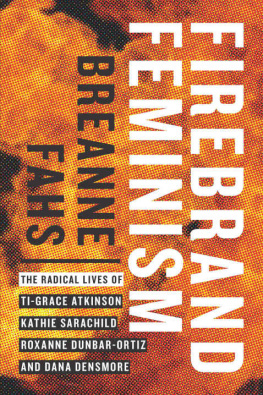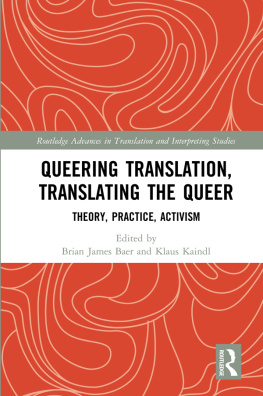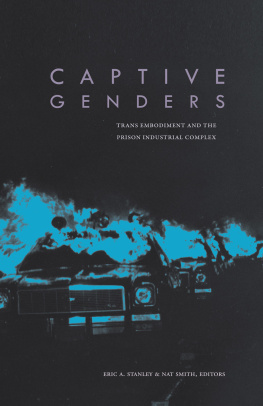

Dedication
To all those struggling toward a world without bosses, borders, and boredom.
Preface
martha ackelsberg
Q ueering anarchism? What would that mean? Isnt anarchism enough of a bogeyman in this country that any effort to queer it would only make it appear even more alien and irrelevant to mainstream culture than it already is? Why do it? And why now?
Becauseas this anthology makes evident in its multifaceted exploration of the many dimensions of both anarchism and queerwe have only just begun to understand the many possibilities offered by a queered anarchism, both with respect to critiques of existing institutions and practices and with respect to imagining alternatives to them.
It is a true pleasure to see this anthologyso long in the makingbecome available to the reading public. As the authors note in their introduction, there have been many books written on anarchism, and many others on queer politics and theory. Interest in the activist side of anarchism, in particular, seems to have increased in recent years. Andat least within more politically progressive communitiesattention to queer activism has also grown. But this volume is, I believe, the first to bring these two traditionsin both their intellectual and activist dimensionstogether and into conversation, particularly for lay, non-academic readers. The project is certainly a timely one, and the outcome of the years of planning demonstrates both the wisdom of the editors initial goals and the value of the work they stimulated.
The editors introduction sets the appropriate tone for the volumehighlighting both some of the myths about anarchism and the complexities of the term queer. I must admit that my enthusiasm for their introduction (and for the work as a whole) is probably connected to the fact that I share their explication of anarchismits destructive as well as its constructive urges, its multi-dimensionality, and the ways it provides a framework for addressing what recent (feminist) scholarship has referred to as intersectionality.[1] Although anarchism has often been thought of as synonymous with nihilism or, alternatively, as an extreme version of a kind of libertarianism ( la Robert Nozick[2]), most of the essays in this book locate themselves within the broader tradition of what has been referred to as more collectivist or communitarian anarchismthat which treats individuality and community as mutually constitutive, rather than as in opposition to one another. That traditionexemplified in the writings of Mikhail Bakunin, Peter Kropotkin, Gustav Landauer, Errico Malatesta, Emma Goldman, and Spanish anarchistsvalues freedom and equality, individuality and community, and treats freedom as a social product, rather than as a value/goal that is necessarily in tension with community.[3] Such an approachoften difficult even to fathom within the liberal individualist culture of the USis wonderfully illustrated through the unusual format/framing of a number of the chapters, e.g. queering the script in the CRAC collectives graphic presentation on sexuality, or the mixing of personal and analytical materials in Sandra Jeppesens essay on queering heterosexuality, or in Farhang Rouhanis or Benjamin Shepards essays on organizing, among others.
More generally, this book offers us, its readers, an eclectic mix of topics, but also of genres, a mix that highlights and manifests the multiple perspectives offered by anarchist approaches, particularly when those approaches, themselves, are queered. The placement of somewhat more traditional academic essayssuch as those, for example, by Jamie Heckert, J. Rogue, and Diana Becerra, or by Liat Ben Moshe, Anthony Nocella, and AJ Withersalongside the contribution of the CRAC collective, or even of what we might term analytical personal testimony offered by many of the writersprovides readers with an opportunity to queer our own expectations of what constitute serious intellectual interventions. In the process, as both anarchism and queer theory propose, these challenges open us up to further explorations of both theory and practice.
I will not attempt here to explore, or even point toward, the many theoretical and practical questions offered by the essays in this volume. The editors introduction does a fine job of surveying the broader landscape. But I would note that one of the things I find most valuable is precisely the range of topics addressed and the authors explorations of the language necessary to communicate their views in ways that are both respectful of the complexity of the experiences discussed and, at the same time, committed to clarity. Queer theory, in particular, can often be dense and obscure, seemingly meant to be read (or at least understood) only by those in the academy who are willing to spend long hours reading (and rereading) it. But the essays in this volume communicate complexity without obfuscation, many of them drawing on real-life, concrete organizing experiences to elucidate the challenges to fixed categories and to binary thinking that have traditionally characterized queer theory. At the same time, they highlight the difficulties posed for an activism that attempts to move forward without re-inscribing those same binaries in the name of challenging them.
This dimension of both anarchist and queer politicsthe (anarchist) insistence that means must be consistent with ends, that the way to create a new world is to take steps to create it, to live the life we want to liveto my mind constitutes both its greatest contribution to the theory and practice of social change and the greatest challenge to its instantiation. It is, I think, why (as the editors note) anarchism has both destructive and creative dimensions: ideally, the creation of the new itself destroys the old forms, by making them irrelevant or pass . But, of course, that is only in the ideal world: as many of the essays in this volume (and as the recent experience of the occupy movements) attest, the mere creating of alternatives is often treated as dangerous and/or threatening by powers that be, and responded to with force and violence. Peaceful prefigurative politics[4]whether anarchist collectives in revolutionary Spain of the 1930s, the communes of the 60s in the US, or the free spaces of food coops, book exchanges, child-care exchanges, or radical queer spacesmay well be ignored only until they start being successful, at which point they confront the full force of the economic, religious, sexual, and/or police powers to which they pose a challenge.
How do we begin to talk about these challengesor the goals to which they aspire? If we use the language of empowermenteven in the sense of power to, rather than of power overwe find ourselves, willy-nilly, in the discourse of power, and, perhaps, in the midst of the very binaries that we are trying to avoid or challenge. How do we challenge that binaryor otherswithout reinscribing it? As Ryan Conrad put it, How do we, as radical queer and trans folks, push back against the emerging hegemony of rainbow flavored neoliberalism and the funneling of our energy into narrow campaigns that only reinforce the hierarchical systems and institutions we fundamentally oppose? How do we reconcile the contradiction of our anger and fervent criticism of so called equality when presently many of our material lives depend on accessing resources through the very subject of our critique?
The strength of this volume is not that it provides simple solutions to these questions (if it did, wed have a handy blueprint for revolution!). Rather, the essayseach in its own waypersistently and consistently ask them and explore the answers. In the process, they queer not only anarchism, but our ways of seeing, and understanding, the connections and mutual reinforcements among structures of political, religious, economic, sexual, and other forms of power and hierarchy in the daily worlds we inhabit.
Next page
